-
 Bitcoin
Bitcoin $114400
1.32% -
 Ethereum
Ethereum $3499
2.20% -
 XRP
XRP $2.922
4.26% -
 Tether USDt
Tether USDt $0.0000
0.03% -
 BNB
BNB $752.6
1.53% -
 Solana
Solana $161.8
1.64% -
 USDC
USDC $0.9999
0.01% -
 TRON
TRON $0.3267
1.32% -
 Dogecoin
Dogecoin $0.1991
3.02% -
 Cardano
Cardano $0.7251
3.29% -
 Hyperliquid
Hyperliquid $38.32
3.36% -
 Stellar
Stellar $0.3972
7.58% -
 Sui
Sui $3.437
2.74% -
 Chainlink
Chainlink $16.29
3.65% -
 Bitcoin Cash
Bitcoin Cash $545.3
3.70% -
 Hedera
Hedera $0.2482
7.49% -
 Ethena USDe
Ethena USDe $1.001
0.03% -
 Avalanche
Avalanche $21.40
2.02% -
 Toncoin
Toncoin $3.579
1.56% -
 Litecoin
Litecoin $109.3
2.20% -
 UNUS SED LEO
UNUS SED LEO $8.951
-0.18% -
 Shiba Inu
Shiba Inu $0.00001220
2.75% -
 Polkadot
Polkadot $3.613
2.99% -
 Uniswap
Uniswap $9.173
3.78% -
 Monero
Monero $302.6
2.62% -
 Dai
Dai $0.0000
0.00% -
 Bitget Token
Bitget Token $4.320
1.52% -
 Pepe
Pepe $0.00001048
3.40% -
 Cronos
Cronos $0.1314
4.33% -
 Aave
Aave $259.4
3.54%
How does the NFT secondary market deal with copyright issues of artworks?
In the NFT secondary market, copyright issues are complex; buyers and sellers must verify ownership and understand smart contract terms to ensure compliance and avoid infringement risks.
Apr 16, 2025 at 05:49 pm
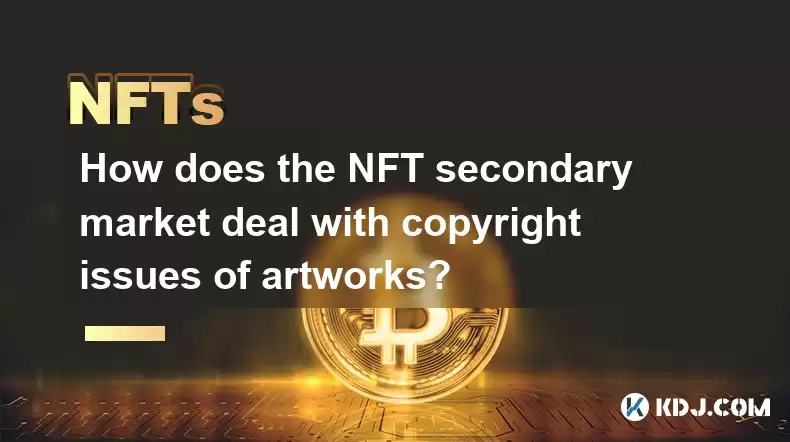
The NFT secondary market, where non-fungible tokens representing digital artworks are bought and sold, faces significant challenges when it comes to dealing with copyright issues. Understanding and navigating these issues is crucial for both creators and buyers to ensure that the transactions are legitimate and the rights of all parties are respected. This article delves into the complexities of copyright in the NFT secondary market, exploring how these issues are managed and what steps can be taken to mitigate risks.
The Basics of Copyright in NFTs
Copyright refers to the legal right granted to the creator of an original work, giving them exclusive rights to use, distribute, and modify the work. In the context of NFTs, the copyright of the artwork is often separate from the ownership of the NFT itself. When someone buys an NFT, they typically acquire the token that represents ownership of a specific digital asset, but this does not automatically transfer the copyright to the buyer. The original creator retains the copyright unless explicitly stated otherwise in the terms of the sale.
Copyright Infringement in the NFT Market
One of the primary issues in the NFT secondary market is the potential for copyright infringement. Sellers may list NFTs that represent artworks they do not have the rights to, leading to legal disputes. Platforms like OpenSea and Rarible have mechanisms in place to report and remove infringing content, but the decentralized nature of the blockchain makes enforcement challenging. Buyers must be vigilant and ensure that the NFT they are purchasing does not infringe on someone else’s copyright.
Smart Contracts and Copyright Licenses
Smart contracts play a vital role in managing copyright in the NFT secondary market. These self-executing contracts can include clauses that specify the terms of copyright licenses. For instance, a smart contract might grant the buyer a non-exclusive license to display the artwork, while the creator retains the right to reproduce and sell additional copies. By embedding these terms within the smart contract, creators can ensure that their rights are protected even after the NFT is sold.
The Role of NFT Platforms in Copyright Management
NFT platforms have a responsibility to help manage copyright issues. Many platforms require sellers to confirm that they have the rights to the artwork they are selling. They also provide tools for reporting copyright infringement, allowing rights holders to request the removal of unauthorized NFTs. However, the effectiveness of these measures varies, and some platforms are more proactive than others in enforcing copyright policies.
Legal Precedents and Case Studies
Several legal cases have set precedents for how copyright issues in the NFT market are handled. For example, the case of Miramax v. Quentin Tarantino highlighted the complexities of selling NFTs based on copyrighted material without proper authorization. In this case, Tarantino attempted to sell NFTs based on his scripts from the movie "Pulp Fiction," which led to a legal battle with Miramax, the film's rights holder. Such cases underscore the importance of obtaining clear copyright permissions before listing NFTs for sale.
Steps to Ensure Copyright Compliance in NFT Transactions
To navigate the copyright landscape in the NFT secondary market, both buyers and sellers can take specific steps to ensure compliance. Here is a detailed list of actions to consider:
- Verify Ownership: Before listing an NFT for sale, sellers should verify that they have the legal right to do so. This may involve checking contracts or obtaining permission from the copyright holder.
- Read the Smart Contract: Buyers should carefully review the smart contract associated with the NFT to understand the terms of any copyright license included. This can help avoid misunderstandings about what rights are being transferred.
- Use Copyright Notices: Sellers can include clear copyright notices in the NFT listing to inform buyers about the rights they are purchasing. This transparency can help prevent disputes.
- Report Infringements: If a buyer or creator discovers an NFT that infringes on their copyright, they should use the platform’s reporting tools to request its removal. Following up with legal action may be necessary in some cases.
- Seek Legal Advice: Both buyers and sellers should consider consulting with a legal professional specializing in intellectual property to ensure they are fully compliant with copyright laws.
The Impact of Copyright Issues on NFT Valuation
Copyright issues can significantly impact the valuation of NFTs. An NFT that is found to infringe on someone else’s copyright may lose its value entirely, as it could be removed from the platform and the buyer may not have legal recourse. Conversely, NFTs with clear copyright documentation and licenses tend to be more valuable, as they offer buyers more security and peace of mind.
Conclusion
Navigating copyright issues in the NFT secondary market requires a thorough understanding of the legal landscape and proactive measures to ensure compliance. By verifying ownership, reading smart contracts, using copyright notices, reporting infringements, and seeking legal advice, both creators and buyers can mitigate the risks associated with copyright infringement. As the NFT market continues to evolve, addressing these issues will remain a critical component of ensuring the legitimacy and sustainability of digital art transactions.
Frequently Asked Questions
Q: Can an NFT be sold without the copyright holder's permission?
A: No, selling an NFT that represents a copyrighted work without the permission of the copyright holder is considered copyright infringement. Platforms have mechanisms to remove such listings, and legal action can be taken against the seller.
Q: How can buyers verify the authenticity of an NFT's copyright?
A: Buyers can verify authenticity by reviewing the smart contract for any copyright licenses, checking for copyright notices in the NFT listing, and researching the seller’s history and reputation. Consulting with a legal professional can also provide additional assurance.
Q: What happens if an NFT is found to infringe on a copyright after it has been purchased?
A: If an NFT is found to infringe on a copyright, it may be removed from the platform, and the buyer may lose their investment. In some cases, the buyer may have legal recourse against the seller, but this depends on the specific circumstances and the terms of the sale.
Q: Are there any platforms that specialize in managing copyright issues for NFTs?
A: Some platforms, such as KnownOrigin and SuperRare, have stringent verification processes and focus on ensuring that only NFTs with clear copyright documentation are listed. However, no platform can completely eliminate the risk of copyright infringement, and buyers should always conduct their own due diligence.
Disclaimer:info@kdj.com
The information provided is not trading advice. kdj.com does not assume any responsibility for any investments made based on the information provided in this article. Cryptocurrencies are highly volatile and it is highly recommended that you invest with caution after thorough research!
If you believe that the content used on this website infringes your copyright, please contact us immediately (info@kdj.com) and we will delete it promptly.
- BCUT: Support Holds, Accumulation Hints at Potential Reversal
- 2025-08-04 10:50:12
- Bitcoin's Bullish Expansion: Decoding Bollinger Bands and Whale Bets
- 2025-08-04 10:55:12
- BlockDAG's Grand Finale: Auction Fever and the Dawn of a New Era
- 2025-08-04 10:30:12
- Kaia Files: Will South Korea Embrace a KRW-Pegged Stablecoin?
- 2025-08-04 10:30:12
- Kaspa, HBAR, and Cold Wallet: A New York Minute on Crypto's Latest Moves
- 2025-08-04 09:11:54
- Ethereum Whale Watch: Selling Pressure and Price Volatility
- 2025-08-04 09:11:54
Related knowledge
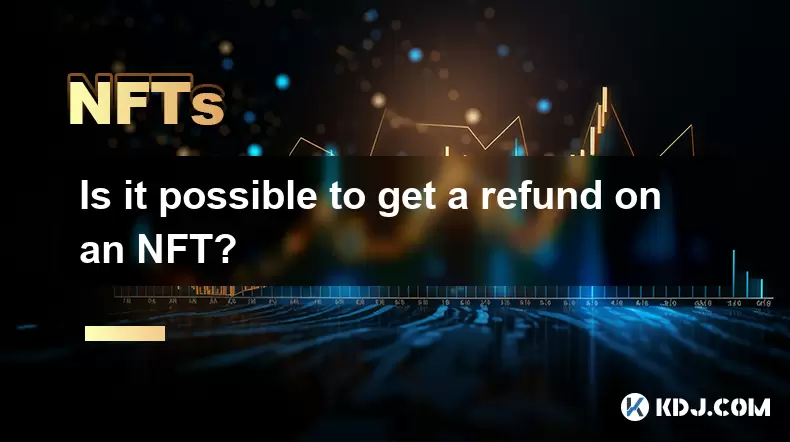
Is it possible to get a refund on an NFT?
Jul 21,2025 at 08:35pm
Understanding NFT Transactions and RefundsWhen you purchase an NFT (Non-Fungible Token), the transaction is typically recorded on a blockchain, making...
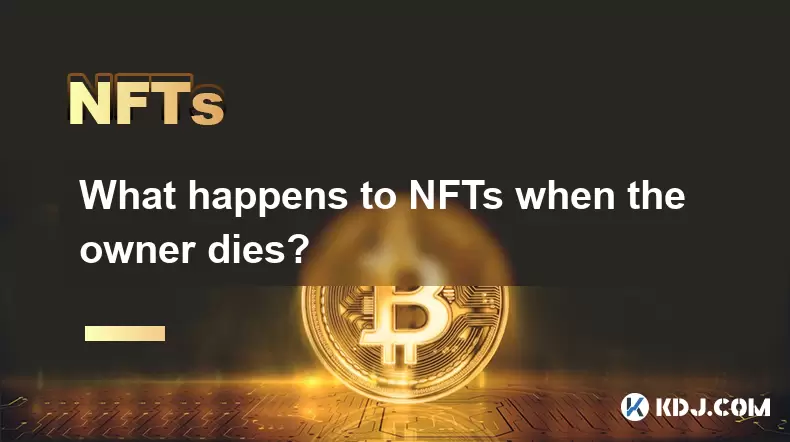
What happens to NFTs when the owner dies?
Jul 22,2025 at 02:43pm
Legal Ownership and Digital AssetsWhen an individual owns NFTs, the question of what happens to these assets upon their death is a pressing one. NFTs ...
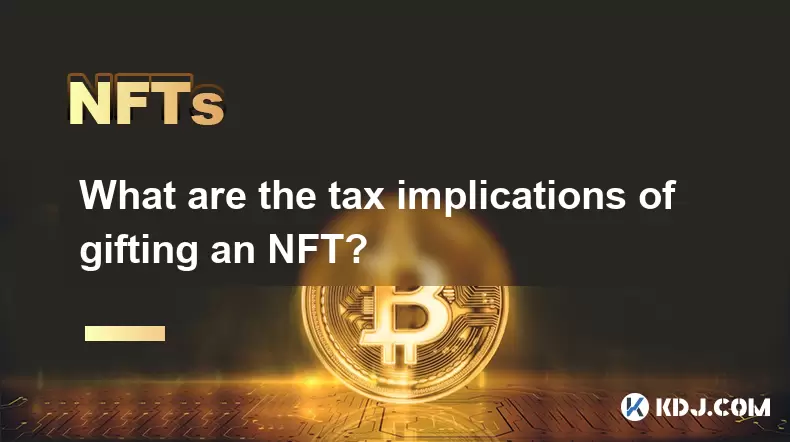
What are the tax implications of gifting an NFT?
Jul 19,2025 at 04:21am
Understanding the Basics of NFT GiftingGifting a Non-Fungible Token (NFT) involves transferring ownership from one individual to another without recei...
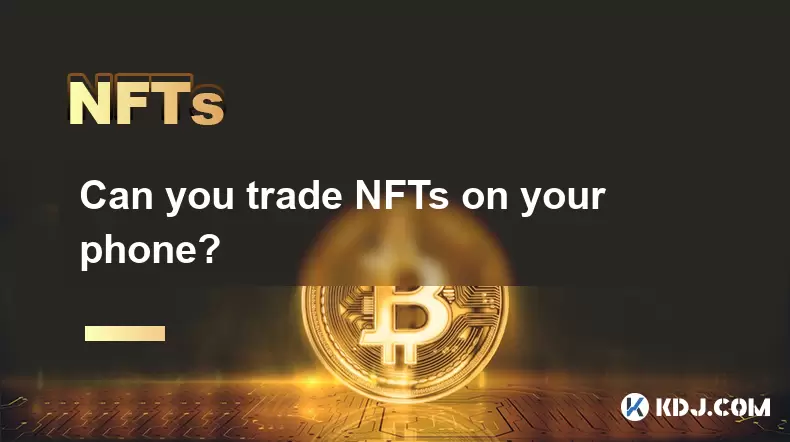
Can you trade NFTs on your phone?
Jul 18,2025 at 04:29am
Trading NFTs on Mobile DevicesYes, you can trade NFTs on your phone, and the process has become increasingly streamlined thanks to a variety of mobile...
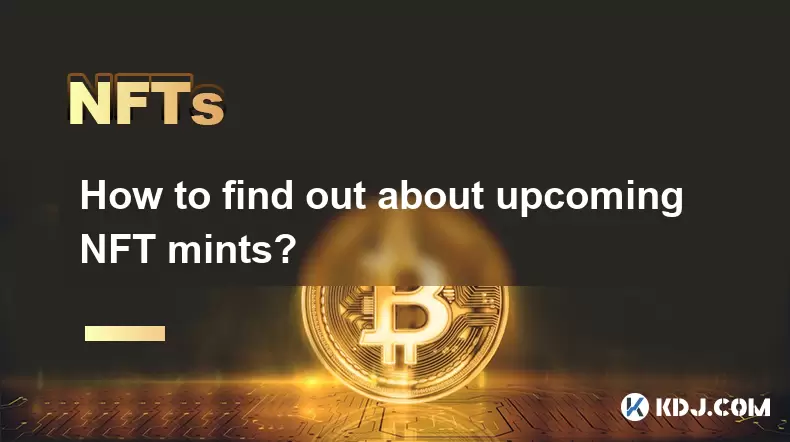
How to find out about upcoming NFT mints?
Jul 18,2025 at 11:50am
Exploring NFT Minting OpportunitiesUnderstanding the landscape of upcoming NFT mints is crucial for collectors, investors, and creators who wish to st...
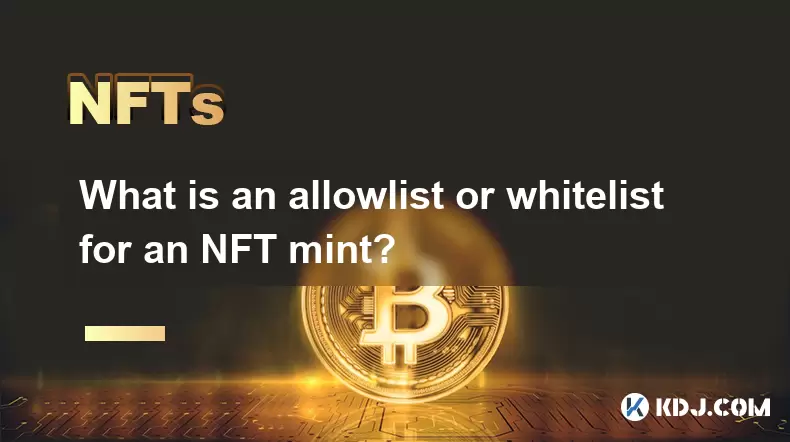
What is an allowlist or whitelist for an NFT mint?
Jul 20,2025 at 07:14pm
Understanding the Concept of an Allowlist for NFT MintingAn allowlist, also commonly referred to as a whitelist, is a mechanism used in the NFT mintin...

Is it possible to get a refund on an NFT?
Jul 21,2025 at 08:35pm
Understanding NFT Transactions and RefundsWhen you purchase an NFT (Non-Fungible Token), the transaction is typically recorded on a blockchain, making...

What happens to NFTs when the owner dies?
Jul 22,2025 at 02:43pm
Legal Ownership and Digital AssetsWhen an individual owns NFTs, the question of what happens to these assets upon their death is a pressing one. NFTs ...

What are the tax implications of gifting an NFT?
Jul 19,2025 at 04:21am
Understanding the Basics of NFT GiftingGifting a Non-Fungible Token (NFT) involves transferring ownership from one individual to another without recei...

Can you trade NFTs on your phone?
Jul 18,2025 at 04:29am
Trading NFTs on Mobile DevicesYes, you can trade NFTs on your phone, and the process has become increasingly streamlined thanks to a variety of mobile...

How to find out about upcoming NFT mints?
Jul 18,2025 at 11:50am
Exploring NFT Minting OpportunitiesUnderstanding the landscape of upcoming NFT mints is crucial for collectors, investors, and creators who wish to st...

What is an allowlist or whitelist for an NFT mint?
Jul 20,2025 at 07:14pm
Understanding the Concept of an Allowlist for NFT MintingAn allowlist, also commonly referred to as a whitelist, is a mechanism used in the NFT mintin...
See all articles

























































































